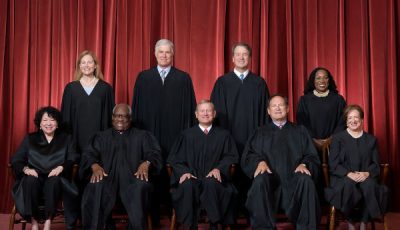Artist Suing Mile High Over Unauthorized Shoot Must Wait for Defendant Deets
 BOSTON – In an order issued Thursday, U.S. Magistrate Judge M. Page Kelley denied a motion for disclosure filed by Leah Bassett, a Massachusetts-based artist suing Mile High Media and other adult industry defendants, in which Basset sought the identities of additional potential co-defendants.
BOSTON – In an order issued Thursday, U.S. Magistrate Judge M. Page Kelley denied a motion for disclosure filed by Leah Bassett, a Massachusetts-based artist suing Mile High Media and other adult industry defendants, in which Basset sought the identities of additional potential co-defendants.
Bassett’s original complaint, filed March 26, named Jon Blitt, April Carter, Gamma Entertainment, TLA Entertainment Group, Monica Jensen, Mile High Distribution, Inc., and Joshua Spafford as defendants. The claims included breach of contract, copyright infringement, trespass and violation of the Massachusetts Consumer Protection Act.
The claims arose from the defendants allegedly filming pornographic movies on property owned by Bassett without her permission – filming which resulted in footage which depicts Bassett’s own copyright-protected artwork.
Bassett later filed an amended complaint which named additional defendants. Bassett then filed an additional motion to compel disclosure of the physical addresses of those defendants, so they could be served with the complaint. Bassett also moved to compel disclosure of “the legal names and current, or last known, physical addresses of each third-party distributor, retailer, actor, and crew member, involved in marketing, selling, or creating the films and stills shot on plaintiff’s premises,” according to court documents.
In June, Bassett’s attorney wrote to the defendants asserting that third-party customers “authorized by Mile High to display and/or sell the films and stills shot on [the] premises… [are] liable per the Copyright Infringement Count.” The letter also claimed that while the defendants “will be compelled to reveal” the identifying information of all those third-parties, it would be “very inefficient administratively and an unnecessary time delay” to wait for that disclosure to come through the formal discovery process.
The defendants responded with a letter of their own, in which they claimed the request was improper under the Federal Rules of Civil Procedure. About two weeks later, Bassett filed the motion to compel at issue in Judge Kelley’s order.
In her order, Kelley noted that “Rule 26(a)(l) requires that, except as exempted by Rule 26(a)(1)(B), each party must provide ‘the name and, if known, the address and telephone number of each individual likely to have discoverable information – that the disclosing party may use to support its claims or defenses, unless the use would be solely for impeachment.’”
Kelley also observed the same rule “does not permit litigants to bypass, or circumvent, such duties to disclose and, upon learning of inaccuracies or the existence of additional, related information, parties must provide timely amendments.”
“If a party fails to make initial disclosures as required by Rule 26 at or within 14 days of the scheduling conference, the opposing party may then move to compel and move for appropriate sanctions,” Kelley wrote in her order. Kelley then noted that the parties “entered a joint statement of counsel” on July 24 which, among other things “set forth discovery deadlines, including September 20, 2018 for initial disclosures.”
“Therefore, to the extent Rule 26 covers information requested in plaintiff’s motion, defendants must timely disclose it,” Kelley wrote. “To the extent disclosure of the requested information falls outside the purview of Rule 26, Bassett may proceed to discover the information within the dictates of the Federal Rules of Civil Procedure.”
In other words, the court is saying Bassett has the right to receive the information she’s seeking – she simply can’t demand it earlier than the Rules of Civil Procedure require.
According to a joint statement filed by the parties on July 24, the discovery plan, mediation and pretrial schedule is as follows: Service of initial disclosures is set for September 20, 2018, mediation before Magistrate Judge Marianne Bowler is set for December 31, 2018 and all written discovery is to be served, depositions taken and fact discovery completed by July 30, 2019.












